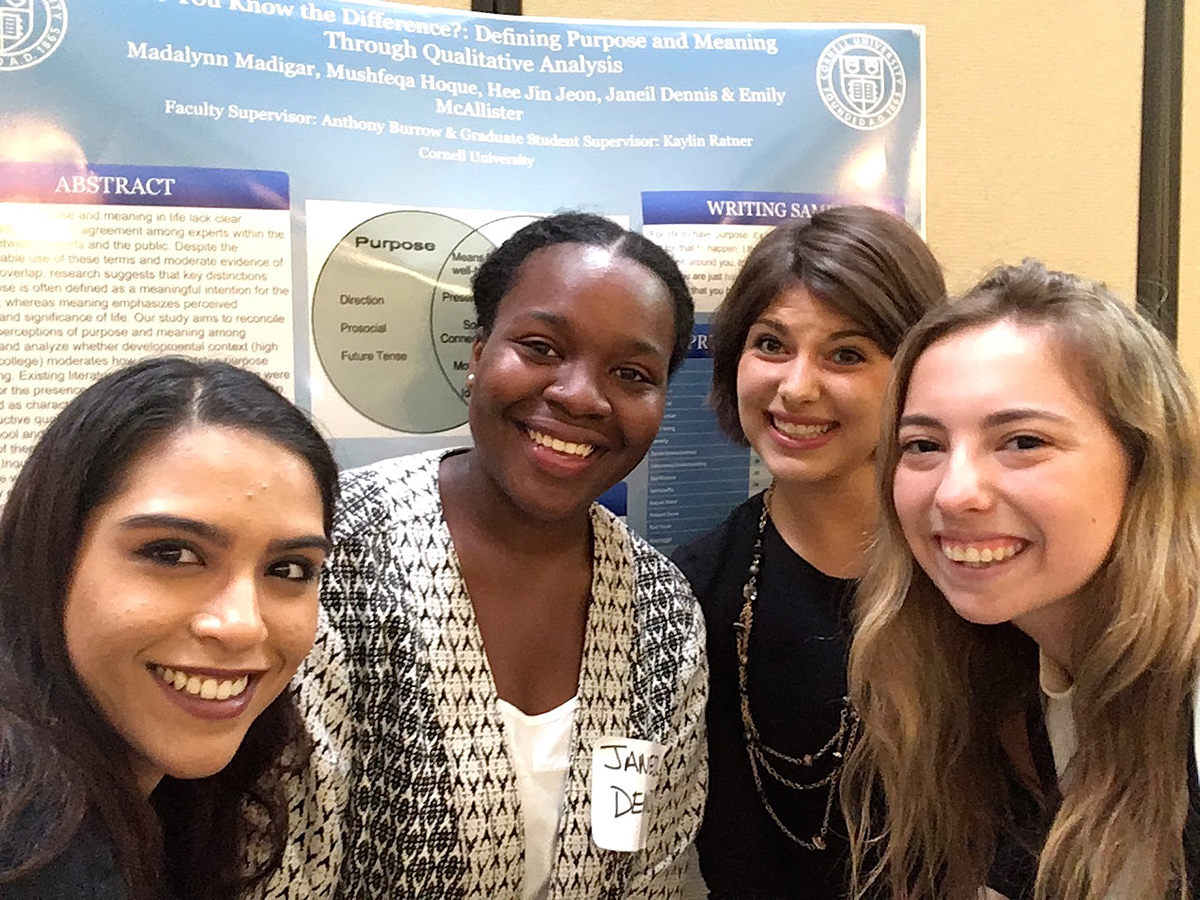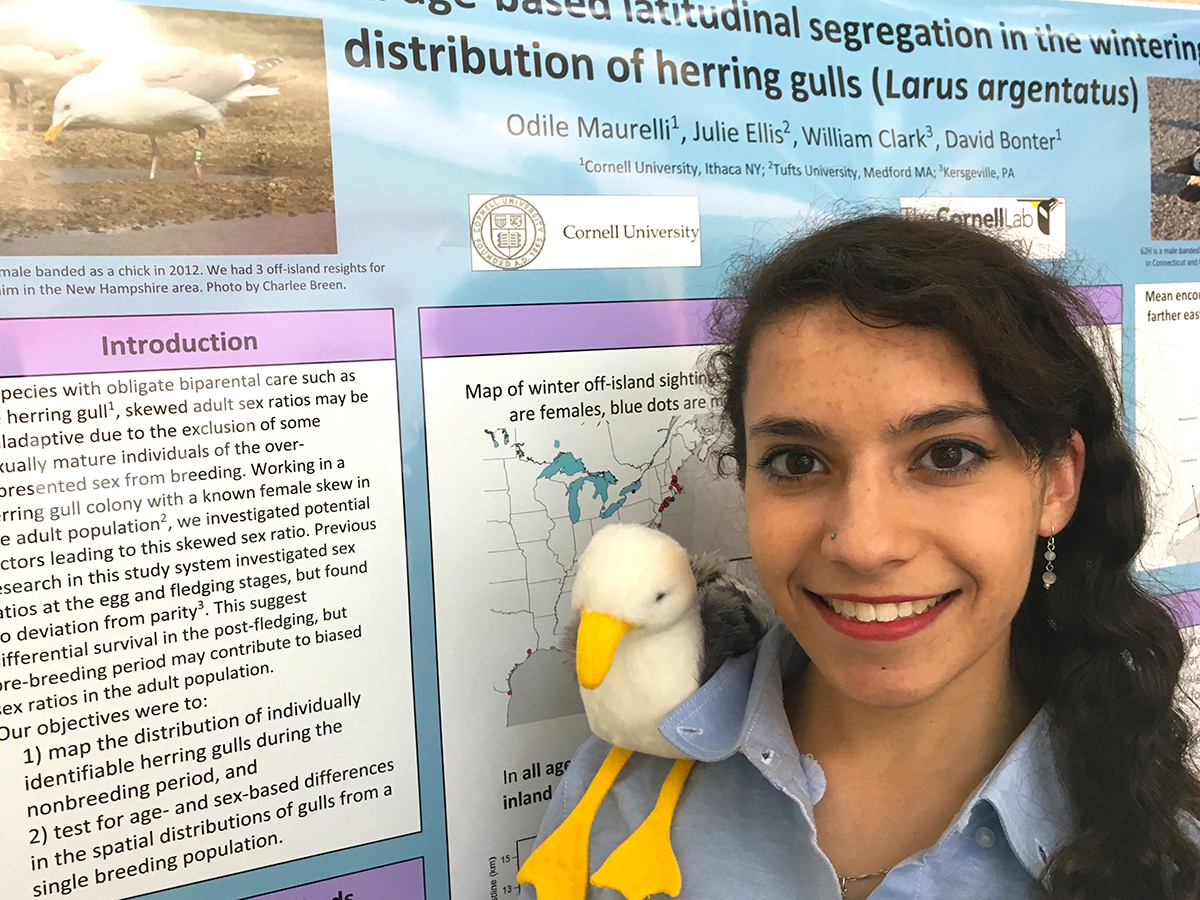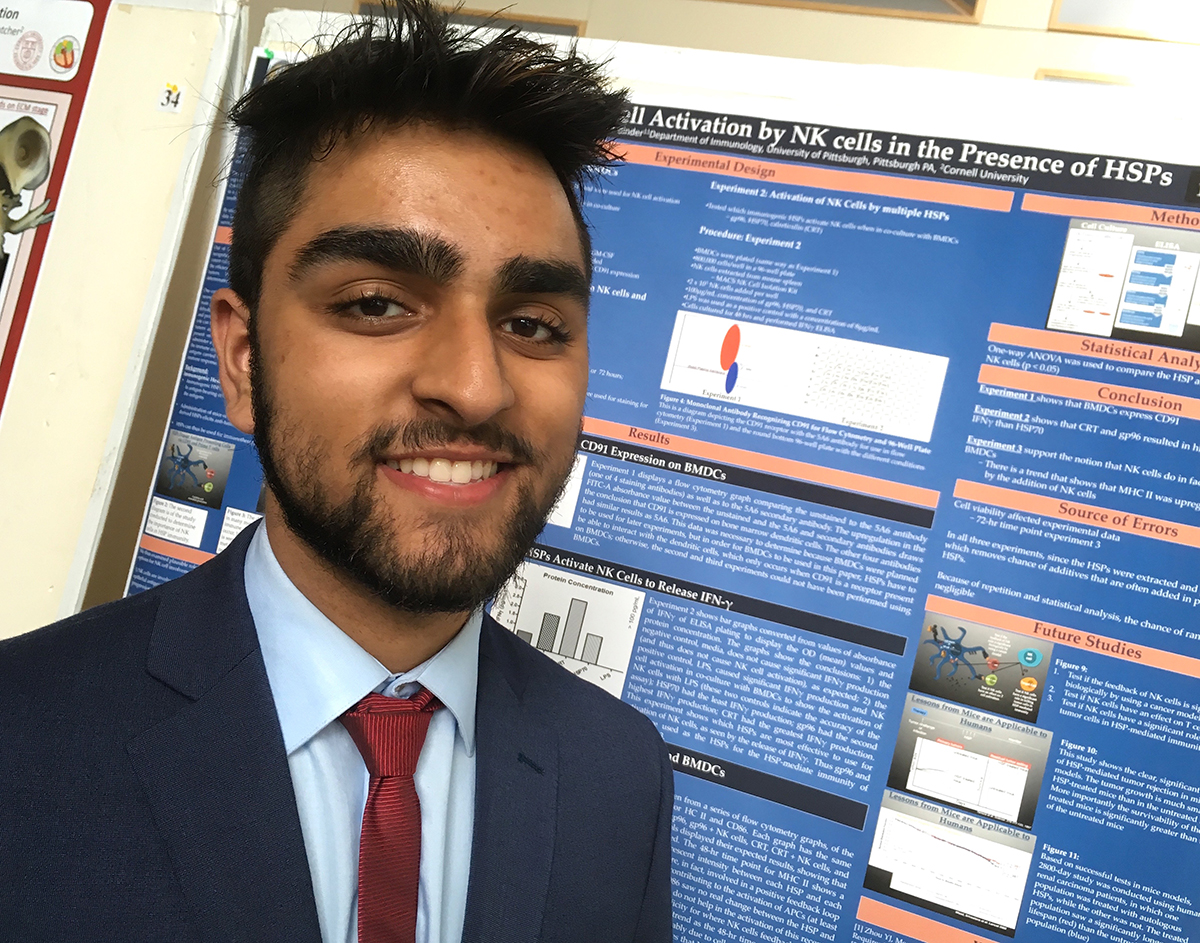CURB enthusiasm: Undergrads show off research at forum
By Blaine Friedlander

More than 80 students unveiled their scholarly work at the 32nd annual Spring Research Forum hosted April 27 by the Cornell Undergraduate Research Board (CURB).
“The annual forum is a very useful event, because in previous years I gained experience presenting my research in a formal setting, which is representative of international research conferences,” said Kelsey Sklar ’17, who now serves as CURB co-president with Ronald Forster ‘17. “Creating a poster helped me to reflect on what I’ve learned through my research and how I’ve grown in my academic niche at Cornell.”
Shreya Mantrala ’18, Ethan Anderson ’18, Samantha Falchook ’18 and Kellie Ochs ’19 trained their intellectual microscopes on teacher labor contracts around New York state, research done on behalf of the Bargaining for Better Schools project in the ILR School’s Worker Institute and the Scheinman Institute for Conflict Resolution. Examining and detailing 732 municipal collective bargaining agreements, the students found New York City school contracts had more clauses favoring teachers than in agreements in other parts of the state.
Zain Mehdi ’20 explained how natural killer cells, commonly known in laboratories as NKCs, can move cancer research forward. He enthusiastically described the role and regulation of dendritic cell activation by NKCs in the presence of the molecular chaperones called heat shock proteins: “Natural killer cells can be used in promoting an attack on cancer cells. By using these natural killer cells, we can find a better way to treat cancer patients through this kind of therapy.”

Sarah Toner ’19 won first place overall for her research poster on the ornamental plumage of red-backed fairy wrens. Among many things, she learned that bright plumage – outside of the breeding season – is associated with the breeding behavior of courtship and the reciprocal preening of feathers by bonded birds.
Adi Agashe ’17 earned second place for identifying forces driving everyday technology, and Tamara Kahan ’17 won the People’s Choice award for her work on how the bacteria Christensenella minuta may influence weight gain.
In the subject categories for poster awards, the winners were Erin Krichilsky ’18 and Sharnendra Sidhu ’17, behavioral and ecological biology; Anant Hariharan ’18, chemistry and physical sciences; Julia Miao ’19 and Kathleen Miao ’17, fiber science and design; Katherine Phillips ’17 and Jeannine Whelan ’17, molecular and cell biology; and Julia Lesnick ’18 and Daniel Stein ’17, psychology and social sciences.
Odile Maurelli ’17 continued previous laboratory work trying to explain why the herring gull population at Appledore Island, home to Cornell’s Shoals Marine Laboratory, had more females than males in that gull population.
“This type of skew isn’t normal,” she said. “It’s not good for the birds, because not everyone can meet and breed.” After conducting citizen-science studies, Maurelli found that young females overwinter further south and west than do the males – indicating that perhaps the differing winter habitats result in divergent survival rates among the sexes.

Madison Ulczak ’17, Suzy Park ’18 and Isabella Esposito ’17 examined linguistic dynamics in jury deliberations. While mock cases varied on evidence strength and injury severity, they found that after juries deliberate, they become less punitive.
Madalynn Madigar ’19, Mushfeqa Hoque ’17, Hee Jin Jeon ’18, Janeil Dennis ’17 and Emily McAllistar ’18 sought meaning and purpose – literally. “We are trying to standardize the definitions of ‘meaning’ and ‘purpose’ in the field of developmental psychology,” said Dennis. “Even among experts themselves, there is a lot of discrepancy, as often the meanings get conflated. So, we’re trying to find if a distinction between the definitions among the lay public does exist, since we want to enhance the reproducibility of social science work.”
Ryan Torrie ’17 explored the effect of networked phenomena on lifestyle politics. Torrie explained that demographic attributes, such as age and gender, affect your hobbies, the kind of music you like, the coffee you drink – because it is channeled through your social network. “You find people like you and you change yourself to be more like them … in other words, you are like your friends, or otherwise they wouldn’t be your friends,” he said.
Media Contact
Get Cornell news delivered right to your inbox.
Subscribe